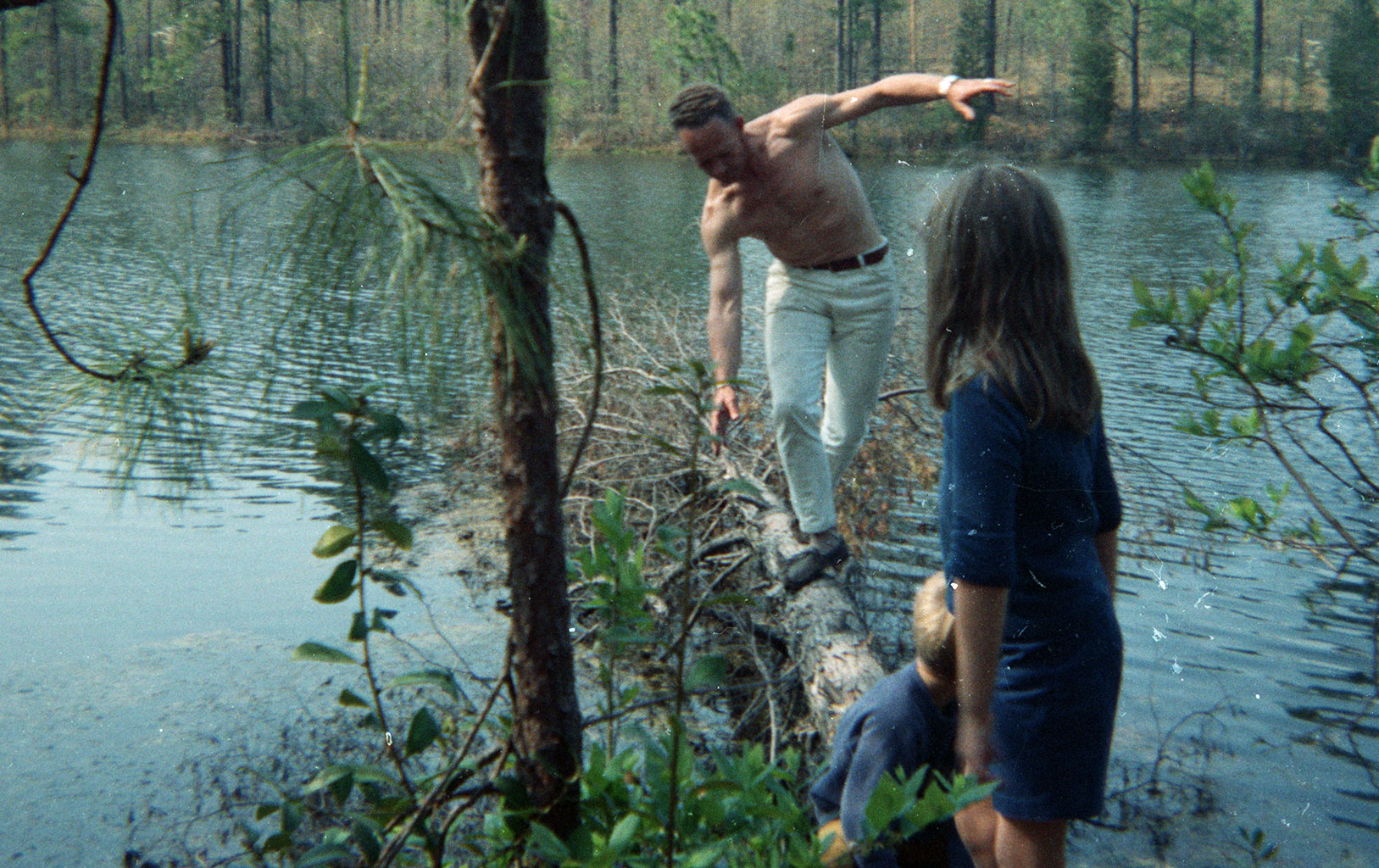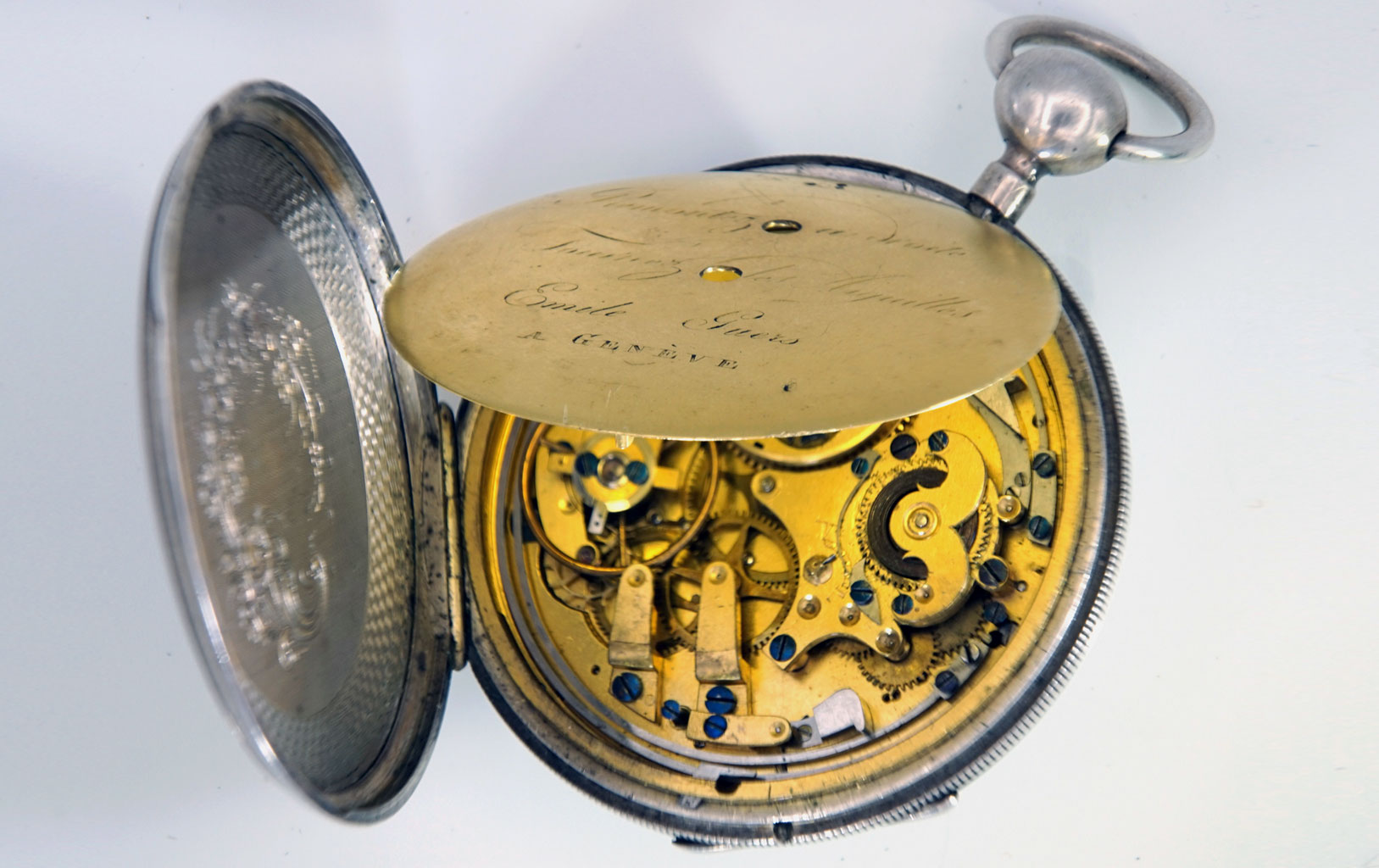About |
|
| Grace When my father died a portal opened that beckoned me to follow. I was twelve years old. He was alive and well one day and dead the next. The world that I'd known before he died collapsed with his passing and all that remained of him was that portal. As the car that I was in ground to a halt in the gravel beside my father's grave I flipped open the ashtray in the arm rest. There, stuck to the underside of its chromed lid, was a chewed piece of chewing gum. After his casket was lowered into the ground our pastor offered me a small spadeful of topsoil. I took the dirt in my hands and tossed it on his casket. It was not, however, the pageantry of my father's funeral or the ritual of his burial that caused that portal to close; it was that wad of chewed chewing gum. I had flipped open the ashtray in the midst of gasping for air, questioning if I was still alive or not, if what I was experiencing was real or not. There before me was God's irrefutable answer. I found this sign of divine irreverence exhilarating. I immediately travelled back in time and told my distraught self of a few days earlier that the everything was going to be okay. This mirrored what my mother had told my sister and me the night my father died, but which I had not believed at the time. It also mirrored what our pastor had told us, which I had also not believed. The presence of that chewing gum at that moment, however, was undeniable and absolute: God had spoken to me directly. From then on I became mindful of the importance of my future to my past and I began taking actions that I believed would make my younger self happy to be alive. A year after my father's death I briefly glimpse him walking away through the haze of a city bus window. I say goodbye to him one last time. I won't see him again for almost fifty years. The Geneva Awakening was a period in time in the early 1800s when a group of young protestant students and pastors, including a young Genevan pastor named Emile Guers, confronted the established Church of Geneva and demanded a more direct relationship with God. In the view of the "Society of Friends," as the group called themselves, the church was standing in the way of its parishioners' relationships with God by interpreting the bible for them instead of letting them come to their own conclusions. They expressed their displeasure with this by evangelizing biblical literalism, in particular with respect to biblical prophecy. In 1856 Guers wrote: "But on the principle of interpretation, which sees a metaphor everywhere, in every part a mystical meaning, always substituting the secondary application for the original signification, prophecy assumes a false colour, it becomes perverted, forcibly nullified by being allegorized; a veil is put before our eyes, the facts do not correspond with the words, the sacred text must be twisted, and put in a straight waistcoat to conform it to our traditional systems, and to make it say what it does not say, what it refuses to say; prophecy becomes diminished, impoverished, it sickens in de-literalizing, in de-judaizing it, it loses its amplitude, its beauty, its fullness; its moral applications have neither the same life, nor the same interest, nor the same variety, nor the same savour." That's some pretty kick-ass writing for the 1800s if you ask me, all spun up as an affront to the church because it insisted on dictating how biblical prophecy, which Guers himself admitted was bonkers, should be interpreted. I felt the same way about the rituals around my father's death; I needed to grieve in my own way, interpret the symbols around me for myself, and come to my own conclusions. In retrospect I appreciate the reassurances that my mother and my pastor offered me, but it will always be that chewed chewing gum that I remember the most vividly because of its timing, visual impact, and specificity to me. I liken Guers' and his colleagues' combative spirit to that of the religious right of today: their insistence on following a path of populism and patriotism being not so much an expression of a political ideology as it is a way to demand their right to believe whatever they want to believe without having some condescending globalist agenda born of power and greed shoved down their throats and injected into their bodies. I relate to their passion for freedom and I respect their right to view the world through the symbols of their faith. They have the numbers and organization to confront and contain humanity's enemies. I don't. Two years after my father's death my mom began dating the pastor that had buried him. When I was fifteen years old, they married. My stepfather, like Emile Guers, enjoyed what I still view as a direct relationship with God: he had marched with Martin Luther King Jr., John Lewis and the leaders of the Methodist church and had become a conference leader himself. But over the decades that followed he had also become increasingly at odds with the church's dogma, which he felt had come to center around money. In his final years he told me that he was optimistic that a new generation of Christians was emerging that was focussed on action. This came as no surprise to me. My stepfather had been my pastor from the age of eight to twelve. I had experienced his evolving relationship with the church firsthand through his sermons. What I learned from him had freed me and enabled me to live my life in a state of grace without the church as I watched him grapple with its drift into collection plate salvation in his. At the University of Colorado I became interested in Carl Jung's ideas about a universal collective unconscious and archetypes. Jung's ideas about the father archetype in particular led me to question if I might unconsciously augment my memory of my father with an archetypal projection and then hold that up as an impossible standard for myself later in life. I also discovered that Jung had given a name to what I had experienced with that wad of chewing gum: synchronicity. Almost fifty years after his death I will meet my father hiking in the mountains above Boulder. I am a child again. I am overjoyed. I reach out to embrace him. He draws away. He won't let me touch him. He explains that he's, "not that into hugging." I ask him what he's been doing since he left us. He tells me that he's been modeling. I find this incredible. He looks just like I remember him. What are the odds that I would never have seen him in an advertisement in all these years!? He clarifies that he's been working exclusively as a hand-model. At first I find this extremely odd, but then my logical mind begins to stir: Of course! That explains both how he was able to support himself financially and why I never recognized him: I only saw his hands! I awaken and laugh at my own subconscious for pranking me. I recall the scene in Zoolander in which David Duchovny appears in the graveyard with a hyperbaric glass mitten on his hand, and then the scene in which Derek looks at his reflection in the puddle and asks, "Who am I?" I laugh even harder. My father's memory never ossified into Carl Jung's traditional father archetype as I had feared it might, instead it blossomed into an expression of my own history, sense of humor and joie de vivre as one might expect it would. While light on archetypal symbolism my silly Zoolander dream was chewing-gum-level for me in terms of personal meaning: I met the mother of my daughter working with Ben Stiller and the Zoolander hand-model motif resonates with the idea of the invisible hand of God in an insanely wonderful way. Synchronicity. |
|
Jung's insights into archetypes were not particularly novel. If they were they wouldn't be universal. However, he started a discussion about stereotypes in a language other than religion. Organized religion is in the business of turning stereotypes into dogma, whereas stereotypes disembodied from dogma are just stereotypes: we can take them at face value, embrace them, discuss them, laugh at them, and most important of all, we can defy them without our doing so being an affront to God. We can even question if some stereotypes may actually be innate; if religion may derive from biology rather than the other way around. Jung's ideas were an intellectual leap forward from the dogma of the church. They helped me understand my stepfather and others that made it their life's work to question that dogma while also inspiring me to embrace and explore my own direct relationship with God and to act accordingly. Jung himself was asked near the end of his life if he believed in God. He answered, "I don't have to believe. I know." I'm now approaching being old enough to have been my father's father when he died. When that portal finally returns for me and I meet him again the first thing I'm going to say to him is, "It's okay. I did what you wanted me to do. I lived!" Of course I'm only guessing what my father would have wanted, and I won't actually say anything because I'll be dead. But my memory of my father belongs to me. I can say to him whatever I want. |

